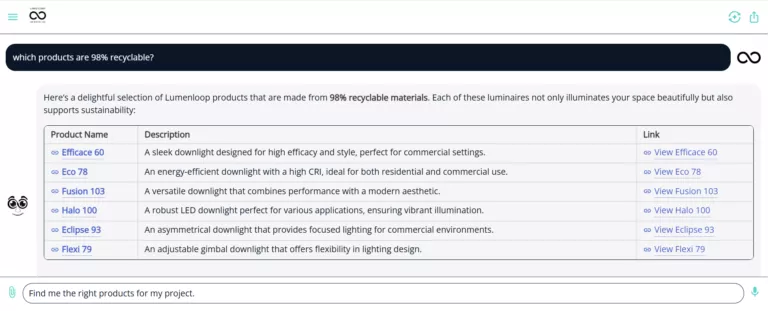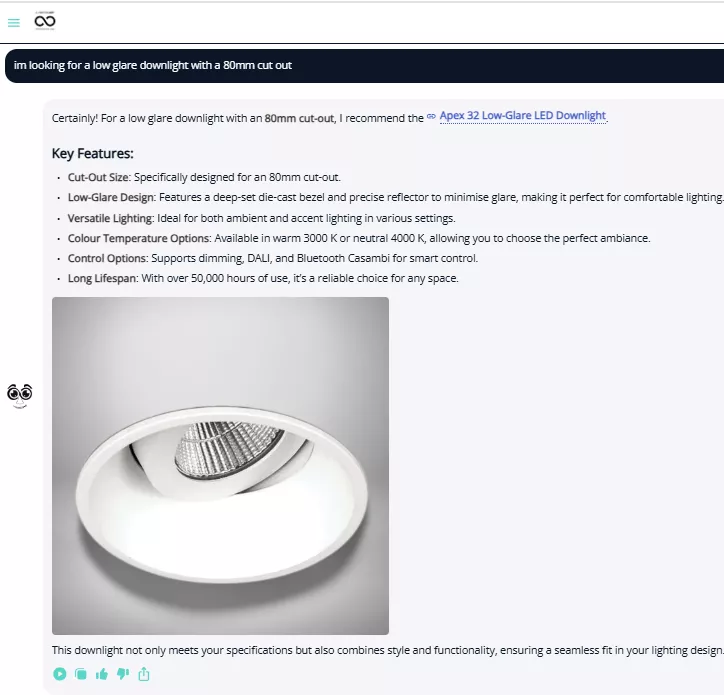3 Manufacturers Winning with Modern Digital Marketing Strategies

Remember when manufacturing marketing meant hauling samples to trade shows, mailing thick catalogs, and waiting months for purchase orders? Those days aren’t completely gone, but they’re fading fast—and 2026 is shaping up to be the year that changes everything.
The manufacturers winning right now? They’ve stopped treating marketing like a necessary evil and started building it like they build their products: with intention, precision, and real investment. They’re using digital strategies that actually work, not because some consultant told them to, but because they’re seeing the results in their pipeline.
Why Digital Marketing Matters for Manufacturers
The manufacturing world is different than it was five years ago. Your next customer isn’t waiting for your sales rep to call—they’re Googling solutions at 11 PM, comparing specs on mobile devices, and making shortlists before you even know they exist.
If you’re still relying solely on the same tactics that worked in 2015, you’re invisible to these buyers. Digital marketing isn’t about abandoning what works; it’s about meeting customers where they actually are. And right now, they’re online.
From Trade Show Booths to Digital Touchpoints
Look, trade shows still have their place. So do printed materials and face-to-face sales. But here’s the reality: your competitors are combining those traditional strengths with search visibility, email automation, and websites that actually convert visitors into leads.
The shift isn’t about choosing digital or traditional—it’s about using digital channels to amplify everything else you’re already doing. Smart manufacturers are running targeted email campaigns that nurture relationships between trade shows. They’re creating content that answers technical questions before the first sales call. They’re showing up in search results when engineers are researching solutions.
That’s not revolutionary. It’s just common sense in 2025.

Importance of Online Presence for Manufacturers
An An effective online presence is crucial to improving your digital marketing efforts. In fact, it is now essential for manufacturers seeking to thrive in the market. A strong online presence allows manufacturers to showcase their product or service, share valuable information, and interact with customers directly at a far larger scale.
There is an ever widening gap between manufacturers that have embraced digital marketing channels and those that haven’t yet. Although there are many to choose from, the real examples below focus on company’s websites, SEO practices, and AI to make it easier for potential customers to find and learn about their offerings. Moreover, a well-maintained online presence significantly contributes to Building brand awareness is essential for achieving marketing goals and building credibility.
Key Strategies for Effective Digital Marketing
Manufacturers looking to expand their market reach need a comprehensive digital approach that connects with today’s buyers.
Here are the core strategies that deliver measurable results:
Web Design That Drives Conversions
Your website is your most powerful sales tool. A professional, user-friendly design showcases your capabilities, builds instant credibility, and guides visitors toward action. Mobile-responsive layouts, intuitive navigation, and fast load times ensure potential customers can easily explore your products and services—turning browsers into qualified leads.
SEO for Maximum Visibility
Dominate search results when customers are actively looking for your solutions. Strategic search engine optimization puts your manufacturing business in front of decision-makers at the exact moment they need you. From technical optimization and keyword targeting to local search dominance, effective SEO generates consistent, high-quality traffic that fuels sustainable growth.
AI Chatbots for 24/7 Customer Engagement
Never miss an opportunity with intelligent chatbots that work around the clock. AI-powered assistants instantly answer product questions, qualify leads, schedule consultations, and provide technical support—even outside business hours. This automation enhances customer experience while freeing your team to focus on high-value interactions.
1) Lumenloop: AI-First Engagement
Introducing AI in the Specification Process
Lumenloop, a leading UK lighting manufacturer, has embraced digital marketing strategies by integrating artificial intelligence (AI) to streamline the product specification process.
Recognizing the evolving landscape of digital marketing, they have shifted from traditional methods to effective solutions. This approach involves leveraging AI to enhance the customer experience and improve efficiency.
By understanding that many potential customers search online, they have developed a system that meets these needs. The company’s proactive marketing efforts demonstrate their commitment to innovation and customer satisfaction.

Benefits of the AI Lighting Assistant
Lumenloop’s AI Lighting Assistant, known as Loopy, provides numerous benefits to specifiers and designers. Loopy helps users quickly find the right product or service and data without sifting through extensive spec sheets, significantly reducing the specification time.
This effective digital marketing strategy not only enhances productivity but also improves the overall customer experience. By offering instant, actionable answers, Lumenloop has transformed a potentially cumbersome process into a seamless interaction. This is a perfect example of a successful digital marketing strategy at work.
Improving Lead Qualification through Digital Tools
By linking product guidance directly into the customer journey, Lumenloop’s AI assistant acts as a powerful tool for improving lead qualification. The digital tool turns what used to be a barrier—complex technical details—into an advantage, resulting in better-qualified leads and fewer abandoned inquiries.
Loopy isn’t just a generic chatbot; it’s trained on the entire product range, modern lighting design, and emergency lighting best practices. This makes every digital marketing campaign more effective because every customer interaction with the tool results in saving them time. The company’s embrace of AI for successful digital marketing strategies demonstrates a clear understanding of customer needs and effective practices.
2) Contemporary Chandelier Company: SEO as a Discovery Channel

Crafting Content that Resonates with Specifiers
Contemporary Chandelier Company understands that in digital marketing, effective content is king, especially when targeting architects and interior designers. Their marketing strategy involves creating content that directly addresses what specifiers are searching for when sourcing bespoke pieces.
By aligning their content with customer intent, they ensure that their site becomes a valuable resource, including high res images of beautiful products. This is achieved through detailed project pages and clear storytelling about materials and processes, which are essential components of a content marketing strategy.
Ultimately, the company’s marketing efforts are focused on providing information that resonates with their target audience, demonstrating a deep understanding of digital marketing in their niche.
The Role of Visual Storytelling in SEO
The company leverages the power of visual storytelling to enhance their search engine optimization (SEO). CCC use high-quality imagery to showcase their handcrafted, LED-integrated chandeliers, creating visually appealing content that attracts and engages potential customers.
By incorporating rich project pages with detailed visuals, they provide architects and interior designers with a comprehensive understanding of their product or service.
This marketing team understands that visual content not only captures attention but also conveys the craftsmanship and quality that define their brand. As a result, their digital marketing channels become powerful tools for attracting and converting potential customers.
Building an Evergreen Portfolio of Content
Contemporary Chandelier Company excels at building an evergreen portfolio of content, understanding that SEO for high-value products is a long-term game.
CCC’s digital strategies are not about quick wins but about establishing a sustainable presence through valuable, informative content. This includes creating detailed case studies, project stories, and technical specifications that remain relevant and useful over time as part of a comprehensive content strategy.
By consistently updating their site with fresh, engaging content, they ensure that they continue to attract organic traffic and build brand awareness. Their commitment to content marketing reflects a strategic approach to effective digital marketing, ensuring long-term visibility and success.
3) FISco: Transforming an Old Website into a Fresh SaaS

Integrating Digital Tools into the Customer Experience
FISco demonstrates a forward-thinking approach to digital marketing strategies by transforming their website into a Software as a Service-like platform.
FISco’s marketing efforts focus on integrating digital tools directly into the customer experience, providing ongoing value and fostering stronger client relationships.
Instead of relying solely on traditional marketing channels, FISco has embraced digital strategies that enhance customer engagement. This approach not only attracts potential customers but also ensures their continued satisfaction and loyalty, showcasing an understanding of digital marketing as a critical component of their business model and reflecting practice.
Enhancing Customer Engagement through Data
By centralizing data and automating reporting through platforms like Taskye, FISco enhances customer engagement and provides measurable value in their digital marketing campaign. This approach to digital marketing strategies means that clients gain access to real-time insights and can make informed decisions based on comprehensive data.
This level of transparency and control fosters a sense of partnership and trust, making it more likely that customers will remain loyal. Their marketing efforts are deeply integrated with the product itself, reinforcing the value proposition and ensuring that every interaction is data-driven, showing effective strategies work in real-time.
Creating Recurring Value for Clients
FISco’s SaaS-like approach creates recurring value for clients, moving beyond traditional facilities management services. By offering a suite of digital tools and dashboards, they ensure that clients receive ongoing support and measurable results.
This focus on recurring value makes FISco an indispensable partner, as clients come to rely on their platform for day-to-day operations.
As a result, FISco not only attracts new customers but also retains existing ones, driving long-term growth and solidifying their position in the market. FISco proves the worth of solid digital marketing strategies and deployment.
Key Takeaways for Manufacturers

Embedding Value in User Experience
One of the key takeaways for manufacturers is the importance of embedding value in the user experience. As demonstrated by Lumenloop’s AI assistant, tools that solve real problems and shorten sales cycles are incredibly effective.
By focusing on providing tangible benefits to customers, manufacturers can differentiate themselves from competitors and build brand awareness. Marketing efforts should prioritize creating seamless, intuitive experiences that streamline the purchasing process. This not only improves customer satisfaction but also drives conversion rates, highlighting the role of solid digital marketing strategies.
Aligning Content with Customer Intent
Another essential lesson is the need to align content with customer intent, as exemplified by Contemporary Chandelier Company. Detailed project pages and specifications are far more effective than glossy homepages for B2B buyers.
Manufacturers should focus on creating content that directly addresses the needs and questions of their target audience. This involves conducting thorough keyword research and understanding the language that customers use when searching for products and services.
A successful content marketing strategy ensures that the company’s marketing efforts resonate with potential customers, boosting search engine rankings and driving organic traffic.
Making Your Website Part of the Product Offering
Finally, manufacturers should consider making their website an integral part of the product offering, following FISco’s SaaS-like approach. This involves providing valuable tools, resources, and functionality directly through the website, creating a compelling reason for customers to return regularly.
By integrating the website into the product experience, manufacturers can increase customer stickiness and generate recurring touchpoints. This also provides valuable data on user behavior, which can inform ongoing marketing efforts and drive continuous improvement. By implementing these digital strategies, manufacturers can transform their websites into powerful drivers of growth and customer loyalty.
